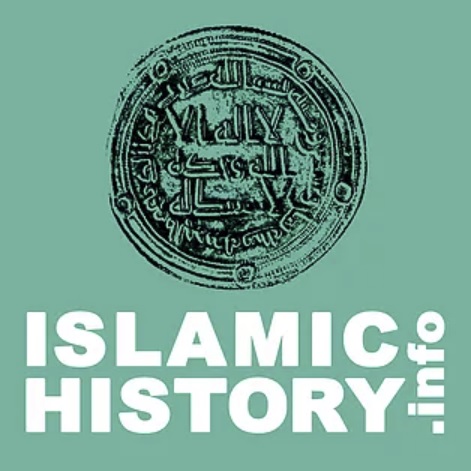Introduction
In this part, we examine the achievments of Uthman during his caliphate. Uthman’s reign lasted twelve years, from 644 to 656 C.E (24H – 35H). The first six years of his reign were trouble free. Although his caliphate ended tragically, his reign can be considered successful from a number of different angles: military, religious and economic.
The military front
One of Uthman’s lasting legacy was the territorial expansion of the Muslim Caliphate. The development of a highly efficient navy contributed to this military success. News of the murder of Umar encouraged the enemies of Islam, especially the Persians and the Byzantium’s to regain the lands that the Muslims had conquered. Uthman’s first challenge as Caliph was to thwart the Byzantine counter offensives against land conquered in the time of ‘Umar. The Byzantine attack was on two fronts; against Alexandria in Egypt which they captured with very little resistance and Syria. ‘Amr bin Al ‘Ăṣ defeated the Byzantium army as it marched from Alexandria to capture Fustat. He then laid siege to Alexandria and managed to recapture the city.
Defence of Sham
The Byzantines sent 80,000 men to recapture Syria. Uthman wrote to Waleed ibn Uqba in Kūfa telling him to send reinforcements to their brothers in Syria. He sent 8,000 men and the Byzantines were repelled with the Byzantine commander killed. Following the Byzantine defeat, Mu’āwiya, the governor of Syria decided to go on the offensive. Without a naval force, the Syrian and Egyptian coasts were vulnerable to Byzantine attack. Mu’āwiya persuaded ‘Uthmān to overturn the decision of his predecessor ‘Umar, and to give permission for a naval fleet to be built. However he stipulated that no solider should be compelled to join the navy.
The conquest of Cyprus
Although Mu’āwiya did not force anyone to join him, a huge army of Muslims set out with him. In 28H, a fleet of 500 ships was sent to Cyprus. The latter was an important Byzantine naval base. Mu’āwiya wrote to the people of Cyprus calling them to Islam, stating that their aim was not to take over their island, but to secure the Muslim borders in Syria, as the Byzantines were using Cyprus as a launch pad and supply route for their armies to attack Syria.Initially the Cypriots agreed to pay the jizya and signed a treaty with the Muslims. However a few years later they broke their treaty and aided the Byzantine navy against the Muslims. Mu’āwiya launched a full-scale attack on Cyprus attacking it from the both sides killing many people and captured many prisoners.
When Cyprus was conquered Abu Darda, sat alone and cried. Jubayr ibn Nufayr approached and asked, “What makes you cry on this day in which Allah has strengthened Islam and its people?” Abu Darda replied, “Woe be to you O Jubayr. How insignificant the creation is to Allah when they abandon His commands. Between us is a nation, who were evidently strong and had dominion, they abandoned the commands of Allah, so see what has become of them!“
Six years after the construction of the first ever Muslim navy, Byzantine naval supremacy in the Mediterranean came to an end in a decisive battle known as the Battle of the Masts. The Byzantine navy of 500 ships was commanded by the Constans II against a Muslim fleet of 200. The naval encounter of the coast of southern Turkey ended in disaster for the Byzantines, and Constans fled to the island of Syracuse where he was killed by the locals.
Conquests in the East
The Eastern part of the Caliphate expanded significantly under the military leadership of Abdullah bin ‘Amir, the governor of Baṣra. After crushing an internal rebellion in Persia, he led an army to Khurāsān conquering Nīshāpūr, Harat, Merv and Balkh. The fall of Balkh ensured the whole of Khurāsān came under Muslim control. The Muslim army continued eastwards and Kabul was captured.
North Africa
A large part of North Africa was also captured in the early part of ‘Uthmān’s reign under the leadership of the governor of Egypt; Abdullah bin Sa’d. Tripoli, an important Byzantine stronghold first fell to the Muslim forces, followed by Sabetula, the capital city of the Byzantine governor Gregory. The latter was killed, and the Muslims went further west to capture Tunisa, Morocco and parts of Algeria.
The Caucasus
Northwards from Iraq, Armenia and Ădharbayjān were re-captured following a rebellion. The Muslim army pushed further north after defeating the Romans, making their presence felt in the Caucasus regions and capturing a large swathe of land west of the Caspian Sea. Thus the reign of ‘Uthman witnessed some astonishing military successes. The Islamic empire continued to expand, with the conquest of Cyprus, Anatolia, Khurasān, Afghanistan, Samarkand, Tushkent as well as Libya, Algeria, Morocco and Tunisia.
Wealth pours in
These military victories brought immense wealth to the Caliphate in the form of booty and land tax. For example, the land tax (kharaj) from Egypt alone was four million dinar. Uthman retained some, but not all of the economic policies of ‘Umar. ‘Umar had decreed that conquered land was not to be divided up amongst the army, but would remain with the local population as official state land. The local farmers paid a tax (fay’) on this land according to the income derived from it. Uthman continued this policy causing consternation among sections of the army.
However Uthman increased the stipends paid to those who had participated in the wars of conquest (ahl al fay’) by 25%. Uthman also lifted the restrictions placed by ‘Umar on the purchase of land in the conquered territories. Taking advantage of loans from the public treasury, many Companions purchased agricultural land in Iraq causing jealously among some of the local population and this resentment was later exploited by those who wished to challenge the Caliph’s authority. ‘Uthman also continued the programme of public works started by his predecessor ‘Umar, and had numerous canals dug for agricultural purposes as well as masjids, rest houses for travellers and schools.
Standardisation of the Quran
One of the greatest achievements of ‘Uthmān is his decision to unite the Muslims on a standard text of the Qur’ān. Hudayfah ibn Yamaan noticed that the disagreement about recitation of the Qur’an had emerged among the armies engaged in battle in Azerjeban. He returned to Madinah in 25H to inform Uthmaan about this alarming development, saying: ‘O Commander of the Faithful, save this ummah before it disagrees about its Book, like the Christians and Jews did before it’. (Bukhari). Ali narrated that Uthmaan assembled the Companions and said: ‘I see that we bring the people on a single mushaf, so that there is neither division nor discord’. And we said: ’an excellent proposal’
Zayd ibn Thābit was chosen to lead a committee of four Companions renowned for their scholarship of the Qur’ān, in order to make official copies from the mushhaf held by Hafsa, daughter of the late Caliph ‘Umar. Seven copies in total were made and were sent to the various regions with an official reciter. With every copy of the Qur’ān, ‘Uthman sent a qari to teach it. This was to emphasise that the recitation of the Qur’ānhad to be learnt orally through a teacher who had an authentic transmission going back to the Prophet (sallahu alaihi wa sallam). Recitation could never be solely based on the text. The script itself was in the Koofee script without nuqat and tashkeel. All other manuscripts were destroyed, and all new copies were to be made from the official copy, known as the Mushhaf ‘Uthmān. Another significant religious event in the reign of ‘Uthmān was the extension of the Prophet’s mosque in 29H.
In part three, we discuss the beginning of the fitnah that led to the unjust killing of Uthman.
Based on The Biography of Uthman Ibn Affan – Dr. Ali Muhammad Sallabi

